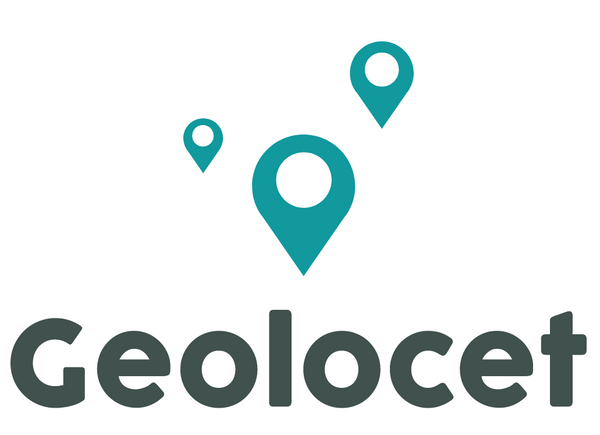Table of Contents
- Introduction
- Key Use Cases of Location Intelligence in Sports and Entertainment
- Benefits of Location Intelligence in Sports and Entertainment
- Leveraging Location Data for Sports and Entertainment
- Conclusion
Introduction
In the dynamic world of sports and entertainment, understanding the geographic context is essential for success. Location intelligence (LI) leverages geographic data and analytics to inform strategic decisions across various sectors. From optimizing venue selection to enhancing fan engagement and improving operational efficiencies, location intelligence plays a crucial role in shaping the sports and entertainment landscape.
Key Use Cases of Location Intelligence in Sports and Entertainment
1. Venue Selection and Site Analysis
Choosing the right location for sports events and entertainment venues is paramount. Location intelligence helps organizations analyze demographic trends, population density, and accessibility when selecting venues. By assessing various factors, such as nearby amenities and transportation options, organizations can identify locations that maximize attendance and engagement.
2. Targeted Marketing and Promotions
Location intelligence allows sports teams and entertainment companies to execute targeted marketing campaigns based on geographic data. By analyzing fan demographics and behaviors, organizations can tailor promotions to specific audiences, enhancing engagement and driving ticket sales. This data-driven approach helps ensure marketing resources are spent effectively.
3. Fan Engagement and Experience Enhancement
Enhancing the fan experience is crucial in today’s competitive environment. Location intelligence provides insights into fan preferences and behaviors, enabling teams and venues to create personalized experiences. For example, data on fan movement within a venue can inform the placement of concessions, merchandise stalls, and entertainment options, ensuring fans have a memorable experience.
4. Traffic and Transportation Management
Efficient transportation and traffic management are critical for the success of large events. Location intelligence can help organizations analyze traffic patterns and forecast crowd movements, allowing for better planning of transportation routes and parking arrangements. This can significantly reduce congestion and enhance the overall experience for attendees.
5. Performance Analysis and Scouting
Location intelligence extends beyond fan engagement to include performance analysis in sports. Coaches and scouts can leverage geographic data to assess player performance based on location. By analyzing how players perform in different venues and conditions, teams can make more informed decisions regarding player development and recruitment.
Benefits of Location Intelligence in Sports and Entertainment
The application of location intelligence offers numerous benefits for sports and entertainment organizations:
- Informed Decision-Making: Geographic insights support data-driven decision-making in venue selection, marketing strategies, and fan engagement initiatives.
- Enhanced Fan Experience: By understanding fan preferences and behaviors, organizations can create personalized and memorable experiences, leading to increased loyalty.
- Cost Efficiency: Targeted marketing and optimized transportation reduce operational costs and maximize resource allocation.
- Improved Attendance: Strategic venue selection based on demographic data can significantly boost attendance and engagement at events.
- Performance Optimization: Coaches can leverage location data for performance analysis, leading to more effective training and recruitment strategies.
Leveraging Location Data for Sports and Entertainment
To fully harness the power of location intelligence in sports and entertainment, organizations can utilize a variety of datasets. Geolocet offers key data that enhances the application of location intelligence:
Demographics Data
Demographics data provides valuable insights into the characteristics of potential audiences. Understanding age, income, and cultural backgrounds helps sports teams and entertainment venues tailor their offerings and marketing strategies effectively.
Administrative Boundaries
Administrative boundaries define geographic regions that are important for planning and outreach. Organizations can analyze data within these boundaries to better understand community needs and enhance their engagement strategies.
Wealth Data
Wealth data offers insights into the economic status of specific regions. Understanding the financial capacity of potential audiences enables more effective pricing strategies for tickets and merchandise, ensuring that offerings are accessible to the target market.
Points of Interest (POI) Data
POI data identifies key locations around sports and entertainment venues, such as restaurants, hotels, and attractions. This information is vital for enhancing the overall experience for fans and visitors, encouraging them to explore the area surrounding events.
Conclusion
Location intelligence is transforming the sports and entertainment industries by providing organizations with the tools to make informed, data-driven decisions. By leveraging geographic insights, teams and venues can enhance fan engagement, optimize operations, and drive attendance. Geolocet's datasets, including demographics data, administrative boundaries, wealth data, and points of interest, provide the foundation for effective location intelligence strategies in sports and entertainment.
To learn more about how our solutions can enhance your sports or entertainment initiatives, visit our Demographics Data, Administrative Boundaries, Wealth Data, or POI Data pages.

